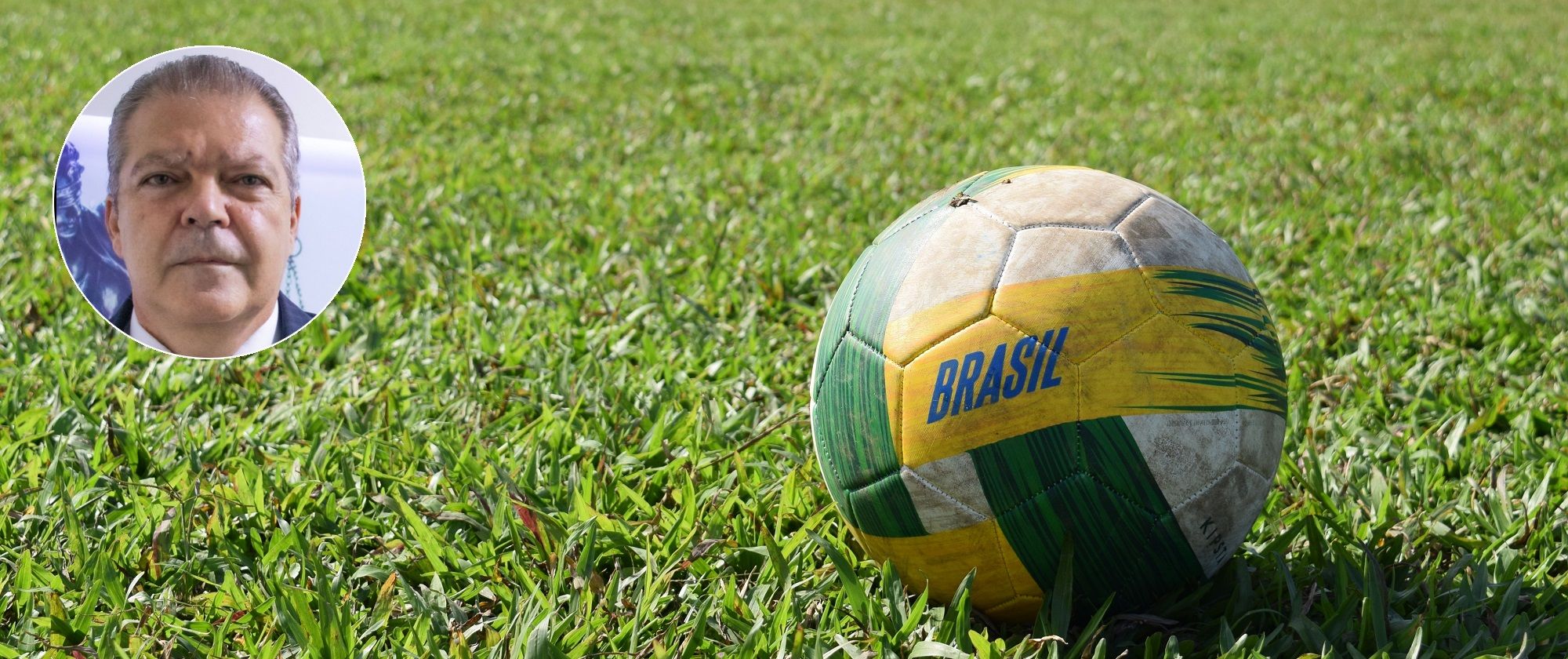
|
04.07.2023 | Teodor BURNAR
|




|
Mr. Luiz Carlos de Araujo Filho (Brazil, member of the WOLEP Sports Law Practice): How the Pelé Law changed the face of Brazilian sports
WOLEP: Please present yourself to colleagues in the WOLEP Network.
Luiz Carlos de Araujo Filho: I have been practicing law in Brazil for three decades. In my legal career spanning 30 years, I have specialized in the fields of Tax Law, Society Law, Business Law, Corporate Law, and trademark registration. Currently, I am pursuing further education in Sports Law through the WOLEP Sports Law Practice in order to expand my knowledge and practice of the law.
WOLEP: You have a special interest in Sports Law. What are some of the challenges specific to Sports Law that, to you, make it a unique area of expertise? What made you to focus - as a new interest - in sports law?
Luiz Carlos de Araujo Filho: Here in Brazil, we are born with a ball at our feet, as they say. Our people grow up playing football in small, makeshift fields known as "várzea" often carved out of wooded areas. While football reigns supreme, Brazilians also have a great appreciation for volleyball – in which we’ve been World Champions as well - and other Olympic sports.
It is important to outline some aspects of the Brazilian legal system for our international guests. Brazil has a state justice system that enforces laws within individual states, as well as a federal justice system on the national level. Above this sits the Superior Court and ultimately the Supreme Court. Brazil also has a separate labor justice system that handles labor disputes. Labor courts see around two to three million cases per year.
The "Pelé Law" which I proposed as a topic for discussion today aims to regulate labor relations in sports. It is fascinating from a theoretical perspective. While spectators see an athlete's performance on the field, few consider the complex contractual relationships that underpin their careers. Brazilian athletes involved in disputes with their clubs may first bring their cases to a sports tribunal before pursuing formal labor justice channels. I am drawn to the study of sports law due to its theoretical implications around evolving employment relationships within the industry. This constitutes my primary motivation.
While spectators see an athlete's performance on the field, few consider the complex contractual relationships that underpin their careers
WOLEP: What were some of the significant changes brought by the Pelé Law?
Luiz Carlos de Araujo Filho: In my view, one of the most significant changes the Pelé Law brought about was allowing players to transfer between clubs more easily. Previously, athletes were at a disadvantage when negotiating with their clubs but the Law now establishes a maximum contract duration of five years. Unless there are grounds for dismissal, the player does not have to pay a transfer fee upon the expiration of their contract.
The creation of sports tribunals to resolve disputes is a step in the right direction, though it remains to be seen how effective they will be in practice. As the saying goes in Brazil, "Brazil is not for amateurs", meaning things often become complicated. Sports tribunals are utilized when athletes and clubs wish to avoid public disputes, however it is unclear how well they are currently functioning.
The Pelé Law also reformed the management of sports organizations. In addition to football leagues - the main league is Brasileirão or „Big Brazil” - it established conditions for other sports leagues and clubs to access public funding. The law also prioritized the promotion of women's sports. While female football players were initially prohibited in Brazil, the sport is now growing rapidly with some of the top players in the country.
These represent some of the primary changes introduced by the Pelé Law. There have been complementary legislation but this landmark bill remains one of the most pertinent pieces of sports law in Brazil over the last century.
WOLEP: The Pelé Law abolished the system of "passive ownership" of football players by clubs, and granted greater autonomy to players. How does the Pelé Law compare to the Bosman ruling (1995) in terms of their impact on the regulation of sports and the rights of athletes/footballers?
Luiz Carlos de Araujo Filho: The Bosman ruling likely did influence Brazilian labour laws in sports, but conditions for athletes in Brazil were already highly unfavourable, especially regarding transfers and labour conditions. The Bosman ruling raised awareness among athletes of their rights.
Many Brazilian athletes play abroad, particularly in Europe, and brought this new perspective back to Brazil. Some went into politics and were elected to the Federal Congress where they advocated for updated visions of sports employment relationships.
Football generates significant revenues in Brazil, with 27 state leagues. The most important leagues financially are in São Paulo, Rio de Janeiro, and Minas Gerais, though I am personally biased towards my home state league.
In my view, the Pelé Law helped rationalize the rules governing Brazilian football by bringing labour conditions for athletes more in line with international standards and balancing the relationship between clubs and players. The Law regularized aspects of sports employment that had historically disadvantaged athletes.
Sports tribunals are utilized when athletes and clubs wish to avoid public disputes, however it is unclear how well they are currently functioning
WOLEP: As you have outlined, the Pelé Law introduced several provisions related to the organization and regulation of Brazilian sports. Can you exemplify how these provisions have been implemented in practice, and what were the obstacles in the process? Was there resistance to change from the „old guard”?
Luiz Carlos de Araujo Filho: The greatest resistance to the Pelé Law came from clubs regarding changes to labor law. Historically, clubs owned the rights to players, essentially treating them like slaves bound for life to a single club. Reform establishing standardized labor contracts and transfer policies was fiercely opposed.
Another contentious aspect was requiring clubs to meet certain conditions to qualify for public funding. Club leaders disliked rules mandating transparency and prohibiting nepotism. However, they supported provisions allowing access to public funds allocated for sports via the National Lottery and other sources. For club leaders, more money outweighed burdensome compliance requirements.
In summary, club officials most strongly objected to labor law reforms empowering players and curtailing their control. Meanwhile, they enthusiastically endorsed provisions granting access to public funds to support club operations.
WOLEP: As you previously stated, The Pelé Law includes articles aimed at promoting and developing women's sports in Brazil. What progress has been made in this area since the law was enacted, and what more needs to be done to achieve gender equality in Brazilian sports?
Luiz Carlos de Araujo Filho: In Brazil, sponsorships for women's sports are lower compared to men's sports. Women's football is not as appreciated or popular due to lingering societal attitudes – people are a little „machista”. Changes are happening slowly, with more women now attending matches. A significant milestone was the introduction of a legal provision allowing women athletes to negotiate their own contracts. Additionally, there is now a woman CEO at Palmeiras football club, which is a remarkable achievement. Progress towards gender equality in Brazilian sports is happening gradually, but there is still work to be done.
WOLEP: Do women's football matches attract enough spectators to fill the stadium, or is attendance typically lower?
Luiz Carlos de Araujo Filho: In São Paulo, women's football matches often achieve stadium capacity. However, it is vital to consider that the majority of these matches take place in the morning or around noon, which is not a prime time for stadium attendance. Additionally, factors such as scheduling games on weekdays, particularly Fridays, or outside of the weekend, impact the turnout as the weekend is traditionally dedicated to men's football. These factors have a significant impact on women players and their visibility within the sport.
The Bosman ruling likely did influence Brazilian labour laws in sports, but conditions for athletes in Brazil were already highly unfavourable
WOLEP: What is the lasting impact of the Pelé Law on Brazil's sports landscape? Can we talk about long-term effects of the Pelé Law on the organization and regulation of sports in Brazil, and what are some of the potential future developments in this area?
Luiz Carlos de Araujo Filho: The evolving perspective on the athlete-club relationship signifies a significant shift in thinking. It marks the beginning of a new era. A key legislation in this regard is the Sociedade Anônima do Futebol, which enables football clubs to offer shares in the market, facilitating capitalization. This represents a crucial step forward, reflecting an evolution in the sports industry. The discussions surrounding this law have garnered considerable attention with various articles delving into the subject matter. Undoubtedly, the Pele Law has opened up numerous opportunities for advancements in Brazilian law, particularly in the realm of sports law. It has raised awareness regarding the organization of sports and the rights of players, paving the way for substantial improvements.
WOLEP: You are a member of the WOLEP Sports Law Practice, and you took part in the first meeting of this practice. What were your impressions and what are your expectations for the next event?
Luiz Carlos de Araujo Filho: I view this Practice as a remarkable initiative, providing a platform to discuss sports and our role as sports lawyers. Sports transcends borders and language barriers, with universally recognized rules, leagues, and championships worldwide. Brazil currently lacks a similar Practice, making this an excellent opportunity for me to engage with colleagues from around the globe, exchange insights, and broaden my perspective by listening to their experiences.
This exchange among lawyers is of utmost importance, as it allows us to understand our distinct roles and responsibilities within the field. While agents and businessmen in the sports industry may focus on lucrative transfers involving substantial sums of money, sports law practitioners in Brazil primarily work in labor law, representing athletes and clubs. It is therefore crucial to highlight the specifics of our work to fellow lawyers in WOLEP, ensuring clarity and effective collaboration within the international sports law community.
Are you a legal eagle with a passion for collaboration? Join forces with other legal professionals and elevate your practice to the next level. Don't wait, sign up now to WOLEP and connect with like-minded lawyers today. Register your account here.
#Vorstellungsgespräche #Luiz Carlos de Araujo Filho #South America #Brazil #sports law #WOLEP Talk




